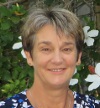Editor’s Note:
Gradually, the hoaxes involving the production of new vaccines (such as Zika virus vaccines) and the global networks that front for these activities, are slowly being made transparent.
The shadowy footprint of Big Pharma allegedly seems to be both the facilitator of negative publicity that promotes its marketing objectives, and the provider of funds (directly and indirectly) that underwrites these activities.
This is the primary reason that i2P stands behind Judy Wilyman in her quest, firstly to have her thesis fully accepted into the scientific literature base and secondly, to ensure that the structure from which she earned her PhD qualifications actually accepts and supports their own processes.
That Judy’s topic for her thesis was Australian Vaccination Policy was always going to be controversial in the face of global political lobbying that has already mandated vaccines for all Australian infants, without proven research for safety and efficacy, is sufficient cause for alarm.
Proven conflict of interest decisions made in respect of the “no jab no pay” by senior Australian politicians means that nothing can be trusted in health policy or any other area of policy generation.
Pharmacists and pharmacies are key components of global pharma marketing strategies.
Big Pharma is setting up systems to reach your patients directly and through you and they are using front organisations such as Friends of Science in Medicine (FSM) to determine how and what you will engage your patients with.
Provided your recommendations align with Big Pharma policies you will be left alone, even rewarded.
But if you wish to be ethical and practice your profession in the best interests of your patients, you will not necessarily be left alone.
I urge all pharmacists to be aware of the forces gradually eroding pharmacist professionalism and the freedom to help your patients receive the best health care you are personally capable of delivering.
But to achieve this requires a fight at “grass roots” and a removal of compromised pharmacy leaders.
Below is Judy Wilyman’s update regarding the only valid debate available on vaccination policy:
The University of Wollongong (UOW) is standing by my PhD thesis that was published on the UOW website in January 2016. Whilst the Australian media has reported this fact they have also provided false and misleading information about this research that is being provided by professional lobby groups that are promoting industry interests in government policies. After researching the medical literature it is clear that the government’s recommended childhood schedule of vaccines has not been proven to be safe, effective or necessary. Whilst the medical literature provides this information governments globally are implementing mandatory vaccination policies as a result of political strategies and powerful lobby groups with access to the mainstream media.The concerned public who have researched vaccines for themselves are choosing not to vaccinate their children (or to selectively vaccinate) and this is why it is necessary to maintain choice in the use of this medical intervention.
Here are the main points that are presented in my PhD thesis of the science and politics of government vaccination policies. Prior to doing my research I had vaccinated 2 of my 3 children:
- Vaccines were not the most important factor in the decline of infectious diseases.
- There is no independent or empirical evidence proving the safety or efficacy of many vaccines or the government’s combined schedule of childhood vaccines.
- The Australian government does not design Australia’s immunisation program in response to the Australian situation.
- Government immunisation programs are designed by public-private partnerships in the Global Alliance for Vaccines and Immunisation (GAVI) that includes influence from pharmaceutical and biotechnology companies.
- In Australia vaccines are promoted to the public in the corporate model of health. This involves public-private partnerships whereby the government provides the funding and corporations have autonomy to promote vaccines through the media.
- Many government representatives on vaccine advisory boards have potential conflicts of interest with pharmaceutical companies. This includes Terry Nolan who was the chair of ATAGI, Australia’s vaccine advisory board from 2005-Dec 2014. He was also the deputy chair of the NHMRC, the medical board that allocates the funding for vaccine research. Some areas of research can be de-funded if the results are likely to be contrary to the interests of industry. This could include independent vaccine research.
- Peter McIntyre and Robert Booy, the co-directors of the NCIRS (Australia’s immunisation research and surveillance advisory board) from 2004 – 2016, declined to attend a public forum held at the University of Technology, Sydney (UTS) in 2015 to discuss the introduction of the mandatory vaccination policies in Australia’s social welfare policies. Here is the presentation I gave at this public forum titled ‘Questions and Answers: No Jab No Pay/Play‘ that explains why they may not have attended. No reason was provided by these government officials or the other ministers and doctors who declined to attend.
- There is no legislation or regulation under any health act in Australia to support mandatory vaccination because the medical literature does not support this legislation. There is also no increased risk from infectious diseases in 2016 and the government has not justified the need for this extreme measure or the reason why it is limiting our human rights with this discriminatory legislation.
Judy Wilyman PhD
The Science and Politics of Australia’s Vaccination Policies.
www.vaccinationdecisions.net

One response to “The University stands by Anti-Vaccination PhD Thesis”
There is a many thousands shortfall between the number of iatrogenic deaths reported in the public domain medical literature and mainstream media as opposed to the government report “Caypuse of death”.
Please google a journalist’s assignment.
Michael